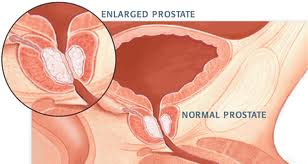
What is Benign Prostatic Hyperplasia? How to manage it? What are the precautions to be taken? What are the signs and symptoms? What is the cause of this disease? How to treat it? How can homeopathy help you? All of this answered, in this post and of course our doctors always there to help you. Just fill in your details in the form down below and we will answer all your questions for FREE!

What is Benign prostatic hyperplasia (BPH)?
BPH is not a malignant disease, it is an enlargement of the prostate gland which begins after the age of 60 years.
What are the Causes of Benign Prostatic Hyperplasia?
• Hormonal imbalance
• Changes in the growth of the cell
What Indicates The Presence Of Benign Prostatic Hyperplasia?
• Slow urine flow
• Difficulty in passing urine
• Urine flow intermittent
• Dribbling at the end of urination
• Urgency to urinate
• Urine frequency increases at night
• Patient has to strain while urinating
• Difficuilty in emptying the bladder
• Urinary tract Infection
• Kidney function affected
• Stones formation in the bladder
What is the Differential diagnosis of Benign Prostatic Hyperplasia?
• Prostatitis
• Urethral Stricture
• Urinary Tract Infection
• Bladder Cancer
• Trauma to bladder
• Stones in bladder
• Chronic Pelvic Pain
• Interstitial Cystitis
What Examinations are needed To Know The Presence Benign Prostatic Hyperplasia?
• Digital rectal examination
• Urinalysis
• Trans-rectal ultrasound
• Kidney function test
• Blood test
What are the Complications of Benign Prostatic Hyperplasia?
• Inability to urinate
• Kidney Damage
• Urinary stones
• Blood in the urine
• Urinary tract infection
How to manage Benign Prostatic Hyperplasia by diet?
• Avoid food containing cholesterol, carbohydrate
• Avoid too much sweet food
• Avoid alcohol or tobacco.
• Consume food rich in omege-3 fatty oil
• Eat lots of fruits, vegetables, whole grains and soy products
What are the Homeopathic treatment for Benign Prostatic Hyperplasia?
• Apis mellifica
• Causticum
• Clematis
• Sabal serrulata
• Thuja
• Gelsemium
• Hydrangia
• Senecio
For more information, you can visit MayoClinic and urologyhealth.com.
We have a strong web presence all across the globe with patients in major countries like United States, Australia, United Arab Emirates, Canada, United Kingdom, most European countries, & even smaller counties like Uganda, Nepal, Bangladesh and many more.
We have a very efficient team of doctors which includes the right combination of highly experienced doctors and the doctors of the new age.
Our main aim is to make the patient comfortable so that the case can be taken with ease and the patient be treated properly.
** The text on this website is sourced from websites like emedicine and/or other verified material by government agencies around the globe along with valuable inputs and additions by our team. The content of this page is proofread and updated by the team of doctors, every once in a while, to provide the most accurate information.